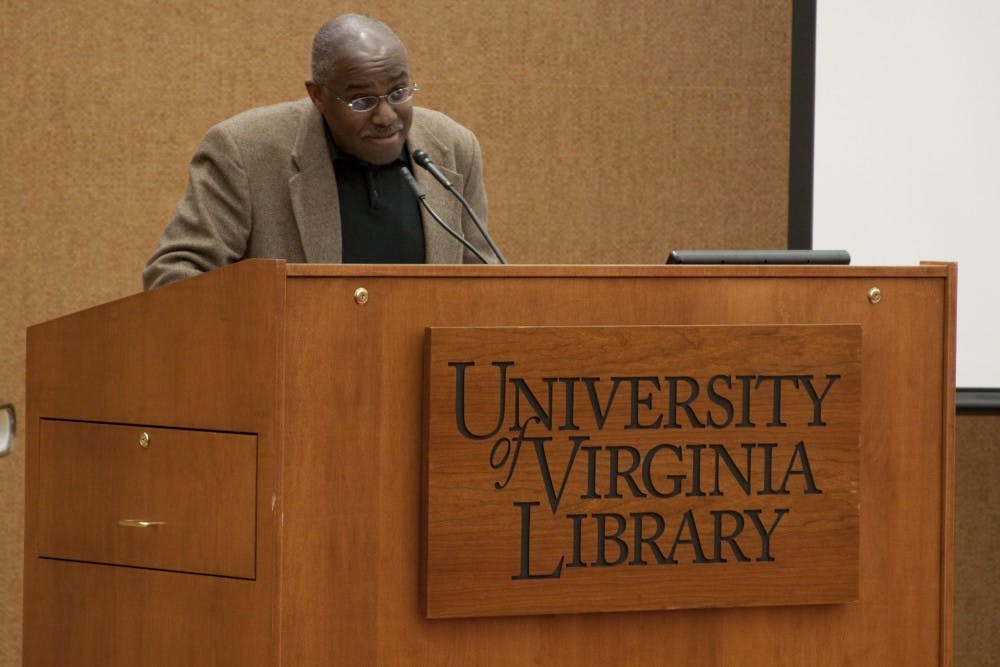Scholars, faculty and artists gathered Monday for a symposium in the Harrison Institute Auditorium to reflect on the politics and artistic influence of Rev. Martin Luther King, Jr.
The event, entitled “Creative Maladjustment: Martin Luther King and the Poetics and Politics of Freedom,” was part of a celebration of the 50th anniversary of three of King’s iconic works, including his “I Have a Dream” speech. University professors from the music, history and African-American studies departments made up a panel examining the influence of King’s word and his contributions to music, the humanities and social sciences.
The name of the symposium, “Creative Maladjustment,” drew its origins from statements made by King himself, History Prof. Claudrena Harold said. “There are some things in our society and some things in our world for which I am proud to be maladjusted,” she said.
The event kicked off with a segment entitled “The Cry That Will Be Heard: The Black Freedom Struggle, American Democracy, and the Aesthetic Imagination.”
Panelists provided evidence linking King’s ideas, teachings and general oratory style to major African-American cultural figures of the 1960s, ‘70s, and ‘80s.
English Prof. Marlon Ross spoke about the similarities between King and the author James Baldwin.
Both men, Ross said, understood the power of the spoken word. “The mouth can violate as powerfully as the sword,” he said. Ross attributed the speaking skill of Baldwin and King to their similar upbringings — both were sons of preachers and grew up to become preachers themselves.
Music Prof. Scott Deveaux drew comparisons between the themes of the works of King and Stevie Wonder. “A lot of [Wonder’s] best work is essentially political in nature,” Deveaux said, adding that both Wonder and King are seen as black political leaders who use folkways to make their points.
History Prof. John Mason concluded the panel by comparing King to photographer, writer and film director Gordon Parks.
Parks isn’t someone normally included in the list of civil rights heros, Mason said, but his photography for Life Magazine provided white America a window into “black America.”
“His job at Life allowed him to reach millions of people every week,” Mason said.







